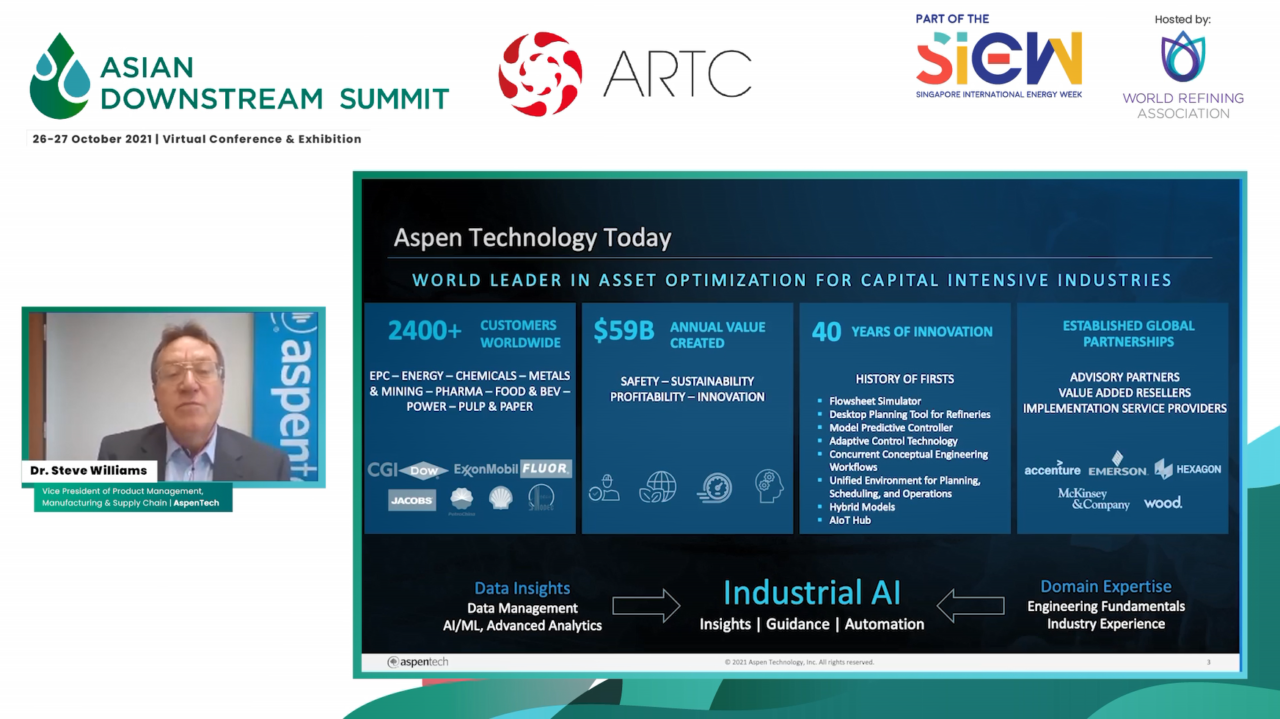Shaping the smart plant of the future with AspenTech
Changing consumer trends and the COVID-19 pandemic have taught the oil and gas industry a great many things, among which the fact that the smart plant of the future will need to support manufacturing agility. This means that the future plant will need to be more complex than ever, with a close integration with the overall enterprise and regional value chain.
Looking to the future, net-zero downstream assets will need to address the dual challenge of sustainable manufacturing and profitability, as well as quickly adjust operations to support changing demands, pricing and external sustainability drivers.
This will call for mobilization of an ever increasing amount of sensor data and more and more effective use of industrial AI to automate optimization, safety, monitoring, planning and sustainability functions.
Dr. Steve Williams, Vice President of Product Management at AspenTech and Leader of the AspenTech initiative for the Self Optimizing Plant, discusses the innovations and strategies that early adopters worked on to share his vision for the plant of the future.

“Overall, we think we can significantly close the gap between planned and actual performance, driving closer alignment between planning, scheduling and operations,” said Williams.
“This offers the possibility of integrated business processes which work over shorter timeframes and enable the plant to be more agile and responsive to smart enterprise demands. Both in terms of value, we’re closing the gap between planning, scheduling and operations and that enables us to reduce the margin leakage, which often occurs between planning and execution, with greater alignment and agility, as well as integrated optimization… We also believe that immersive visualization is going to play a very key role in the future of the self-optimizing planet. And this will include virtual reality, augmented reality, and mixed reality views.”
Williams also emphasised the growth of industrial AI and its growing significance in day-to-day operations: “We don’t think we’re going to completely remove operators from plants in the future, at least not for a long, long time; but we do expect much more focus on autonomous operations. And we think that industrial AI will play an increasingly important role in supporting this transition.”
AspenTech’s goal now is to embed AI in its offered solutions, combining domain experience and deep-learning technology with advanced process control applications. That, and to focus on the value chain and how best to optimise processes within it.
“Overall,” Williams concluded, “we’re not just talking about tracking current performance in a timely fashion, but also understanding the future, and responding to the dual challenge of improving both operational performance and sustainability performance as we move the process industries forward.”
You can watch the full presentation from Asian Downstream Summit (ADS) 2021 by registering HERE! **complimentary access to refiners and petrochemical operators only**